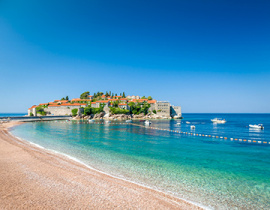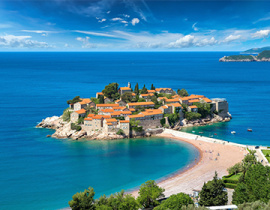An Expat’s Guide to the Education System in Montenegro
Montenegrin education provides a unified system for all levels from pre-school to doctoral grades. Education is compulsory and free for all children between the ages of 6-14. As a result, Montenegro public schools are free for all students.
Have you been hearing about Montenegro’s real estate market? Then you probably want to start a new page here. But if you are a parent, there are some things you need to think of. This includes your child’s schooling.
Here's your guide to the Montenegro school system. Let’s start from the beginning and cover all the levels and options!
Pre-School Education | Age 3-6
 Pre-school education in Montenegro is not compulsory but is accessible. There is a handful count of parents choosing to start their child's education at an early age.
Pre-school education in Montenegro is not compulsory but is accessible. There is a handful count of parents choosing to start their child's education at an early age.
In kindergartens, children may learn to read, write, count, and the English language. They improve their social and motor skills as well. They play games to develop creative thinking too.
Primary Education | Grades 1-9
Primary education in Montenegro is compulsory and free. It has two sections: grades 1-5 and grades 6-9. Students learn math, social and physical science, foreign language, literature, arts, and physical education. They are free to attend social clubs, sports, and art courses.
At the end of the 9th grade, students take an exam. This allows them to continue secondary education if they wish to do so. Also, foreign students prepare for the next levels during the 1st grade. To do so, they learn Montenegrin and English.
Secondary Education | Grades 10-12
This is optional in Montenegro. So, students start planning their future according to their goals. Graduates earn a high school diploma and a chance to continue higher education.
If a student like to continue secondary education, he or she can choose one of the following school types:
General Secondary Education (Grammar Schools/ Gymnasium): It lasts 4 years and aims at students under the age of 17.
Often, students with high grades and university dreams choose these schools. Their curriculum is wider than other schools. After, students may take The Matura exam for higher education.
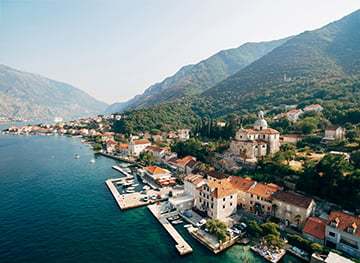 Vocational Secondary Education: In Montenegro, this period lasts 3 years. t has a narrower curriculum mostly with training. The goal is to prepare students for certain work sectors, not higher education. As a result, learning comes second at most times.
Vocational Secondary Education: In Montenegro, this period lasts 3 years. t has a narrower curriculum mostly with training. The goal is to prepare students for certain work sectors, not higher education. As a result, learning comes second at most times.
Students may choose sectors like primary school teaching, trades, and art. In the 3rd or 4th year, students may take the Vocational Exam or Master Craftsman Exam.
Professional Secondary Education: It lasts 3-4 years. The curriculum aims to provide a round education and training in job sectors.
International Schools in Montenegro
Expat families often choose these schools for their children. The main reason is that these schools teach more than school subjects. They help with adjusting to the country, making friends, and learning the language.
The multi-national atmosphere is also very helpful for their students. This way, they learn to have a broader vision of life from an early age.
Here are the best international schools in Montenegro:
- KSI Montenegro
- Arcadia Academy
- QSI International School
- French European School
- Knightsbridge Schools
- Dukley Academy
Higher Education in Montenegro
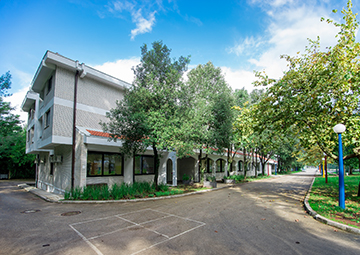 Montenegro is also a perfect destination for expats to have an academic education. There are programs in 100% English as well. It takes 2-6 years. After that, it’s possible to get a Master’s and Ph.D. too.
Montenegro is also a perfect destination for expats to have an academic education. There are programs in 100% English as well. It takes 2-6 years. After that, it’s possible to get a Master’s and Ph.D. too.
Tertiary Education
It has two sections: High education and higher technical education. High education lasts 4-6 years. After completing, students get a bachelor's diploma. Higher education lasts 2 to 4 years.
Post-Graduate Education
If students like to specialize in their fields, they may continue with Master’s and Ph.D. degrees. A Master's degree lasts 2 years, and a doctoral degree lasts 4 years.
Public Universities in Montenegro
The government aims to motivate more students for universities. Since 2017, public universities are tuition-free. Also, post-graduate levels in a public university has been tuition-free since 2020.
University of Montenegro: This is the oldest and only state-run university in Montenegro. It provides education in natural or social sciences, humanities, arts, and engineering programs.
Private Universities in Montenegro
University of Mediterranean: This private university has more innovative goals. It has programs for business, economics, law, and IT.
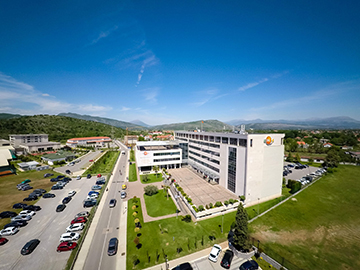 University of Donja Gorica: This university has mostly politics, diplomacy, and foreign affairs programs. Also, there are programs for arts, sports, and food.
University of Donja Gorica: This university has mostly politics, diplomacy, and foreign affairs programs. Also, there are programs for arts, sports, and food.
FAQ
We explained all about the schooling stages and options. If you still have questions, here are the answers:
How do I enroll my child in a school in Montenegro?
It's very simple, but you need some documents. First of all, you need to get these ready:
- Birth certificate
- Abstract from a parent’s employment
- Residence permit for the child
- Passport of the parent
- A health certificate
Once you have them all, you can enroll your child in a school you like.
What language is used in schools in Montenegro?
In Montenegro, the formal language in education is Montenegrin. All school books are printed in this language. But the case may be different in some classrooms.
It's also more flexible in international schools and universities. Most of them give education in different languages. There are many schools for English speakers as well.
Is education free in Montenegro for international students?
 Yes. Primary and higher education is free for all students. But, in Montenegro private schools and universities are not free. The price can be €1.500-€15.000 per year.
Yes. Primary and higher education is free for all students. But, in Montenegro private schools and universities are not free. The price can be €1.500-€15.000 per year.
How can I apply for a university in Montenegro?
First, you need to send your application to the university. After you get an approval, you will need to take an admission test. Depending on the program, you might need to take 1-5 exams.
When you pass the exam, you can enroll in the university. Meanwhile, you need to apply for a Type D (long-term) student visa.
These are the documents you will need for your visa application:
- Copies of passport and 2 passport-size photos
- Invitation letter from the higher education institution
- Return air ticket
- Proof of funds
- Health insurance proof
- Proof for accommodation
Is it possible to study abroad after graduating from high school in Montenegro?
Yes! European Commission states that schools in Montenegro follow European standards. As a result, graduates of all levels can continue their studies outsees.
Is it worth moving to Montenegro with my family?
Yes! Montenegro meets the first requirement: a good and round education system. But beyond that, it has a tranquil lifestyle, natural beauty, and a lucrative real estate market. Its real estate sector is one stable value gain. Also, it offers luxe and budget-friendly options for all families.
This country is getting more and more popular, and there is a good reason for that. Investing in Montenegro comes with a high return. In the future, Montenegro seems to gain even more popularity and value. So, call TEKCE today to find your dream home!




